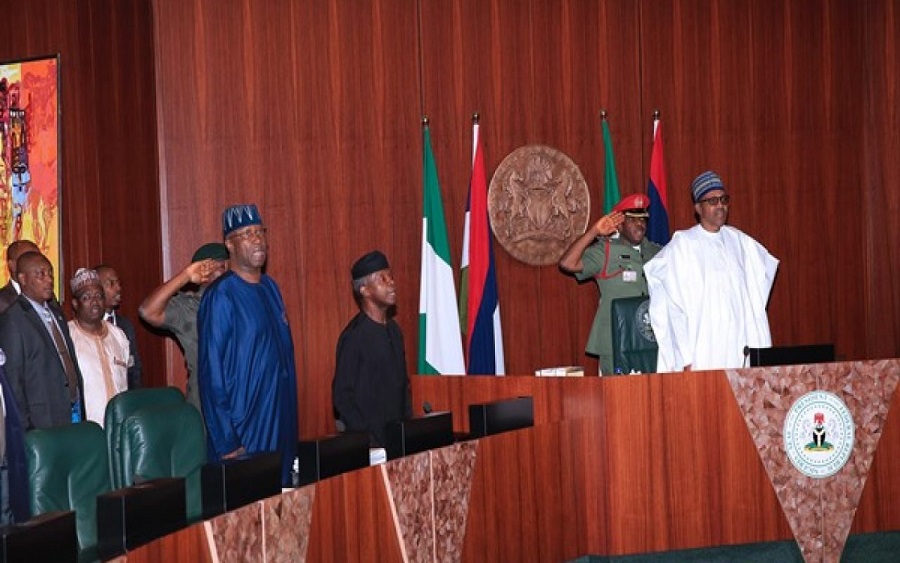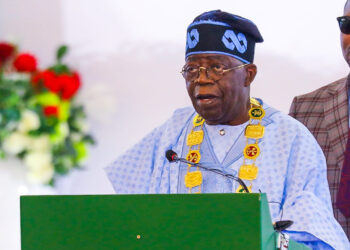The Federal Executive Council has approved a $40 oil benchmark for the 2021 budget, and also FX target of N379/$ for the budget which will be presented to the National Assembly in October.
This was disclosed by the media aide to the President, Tolu Ogunlesis after the FEC meeting on Wednesday. He disclosed that the Ministry of Finance said the first-half performance of the budget hit 68% of revenues while 92.3% was spent on salaries, pensions, debt service and statutory transfers.
READ: New PIB amends royalties by oil firms as Sylva clarifies position on scrapping of NNPC
Budget Proposal for 2021, approved today at FEC
Oil benchmark: $40
Oil Production: 1.86m bpd (incl 400k of condensate)
FX: N379/$
GDP growth target: 3%
11.95% inflation target
N13.08 trillion total aggregate expenditure (29% Capex), with a deficit of N4.48 trillion
— tolu ogunlesi (@toluogunlesi) September 30, 2020
Nairametrics reported in July that the National Assembly passed a revised budget of N10,805,544,664,642 on the 11th of June after the Federal Executive Council (FEC) approved a revised budget of N10.523trillion in May, which was signed by President Muhammadu Buhari.
READ: Petroleum Industry Bill set to go to President Buhari
President Buhari announced that the budget was revised due to the effect of the COVID–19 pandemic on the economy, and disclosed that all MDAs will be allocated 50% of their capital allocation by the month’s end.
The Oil benchmark in the revised budget was reduced from $57 per barrel to $25 and crude production was reduced from 2.18 million to 1.94 million barrels per day in the new revised budget which was disclosed by Zainab Ahmed, the Minister of Finance.
READ: FG responsible for 80% of Nigeria’s N25.7 trillion debt profile
In today’s announcement, the Federal Government stated:
“Budget Proposal for 2021, approved today;
FEC Oil benchmark: $40
Oil Production: 1.86m bpd (incl 400k of condensate)
READ: FEC okays N5.4 billion for gas parks, airport security project
FX: N379/$ GDP growth target: 3% 11.95% inflation target N13.08 trillion total aggregate expenditure (29% Capex), with a deficit of N4.48 trillion.”
The Ministry of Finance added that the FX benchmark moved from N360 to N379, and that the National Assembly will be presented with the budget.


















